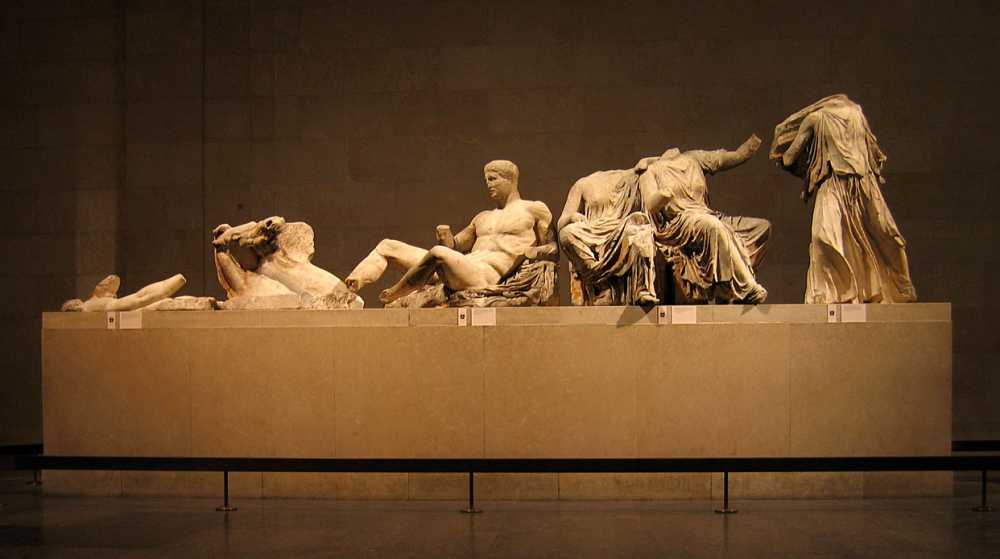International
Parthenon marbles dividing Greece and UK yet

The United Kingdom and Greece are squabbling over the return of the Parthenon marbles, with British Prime Minister Rishi Sunak even going so far as to cancel a planned meeting in London today with his Greek counterpart Kyriakos Mitsotakis. No bilateral meeting between Greece and United Kingdom
Mitsotakis’ statements on the Parthenon marbles
Interviewed a few days ago with BBC journalist Laura Kuenssberg, he had referred to the matter by showing his disappointment at the slowdown in negotiations on the return of the sculptures to their homeland: “We have not made the progress we hoped for, but I am a patient man. After all, we’ve been waiting for hundreds of years, so I can’t do anything but continue the negotiations.” The marbles in question belong to the sculptural group made by Phidias and his pupils in the fifth century B.C. as an ornament to the Parthenon in the Acropolis in Athens. In the early 19th century, they were detached from the famous Athenian temple and brought to England by the Earl of Elgin, then plenipotentiary ambassador to the British crown. According to Mitsotakis, the return of the marbles is not only a matter of “ownership,” but also of “unification,” explaining the concept thusly: “It’s like if I told you to cut the Mona Lisa in half and display it half in the Louvre and half in the British Museum. Do you think your viewers would still appreciate its beauty? Well, that is exactly what happened with the Parthenon marbles.” Beyond the less than felicitous Jocunda example, a return of the marbles to Athens would allow the sculptures to be enjoyed in their entirety and authenticity.

Sunak’s closure to transfer
Words sent Sunak into a rage, and he decided to cancel the meeting between the two. Sources close to the government report how Mitsotakis’ tone and statements “made it impossible” for the meeting to take place and that “our position is clear: the Elgin marbles are part of the British Museum’s permanent collection.” Indeed, the British believe that the Earl of Elgin’s actions were legitimate conduct and not an act of spoliation, bringing in support of this thesis the latter’s authorization, which is also quite controversial, that he had received from the Sultan (Greece at the time was still under the rule of the Ottoman Empire). The Greek prime minister said he was “dismayed” by the cancellation of the meeting, recalling how it did not have as its main object the return of the marbles but rather “the great challenges of current international events: Gaza, Ukraine, the climate crisis, migration.






